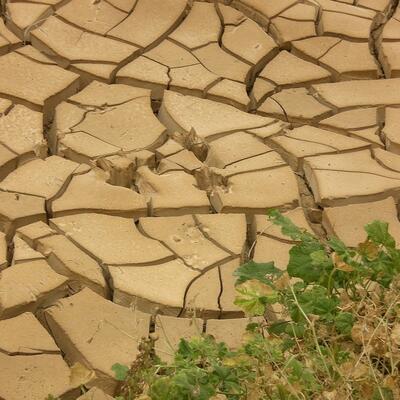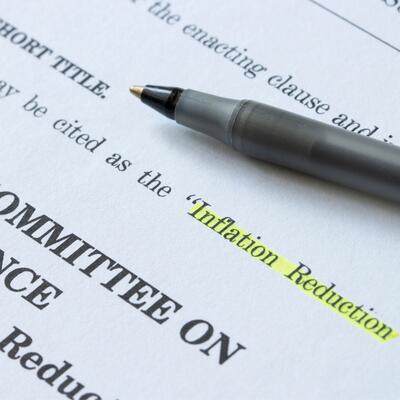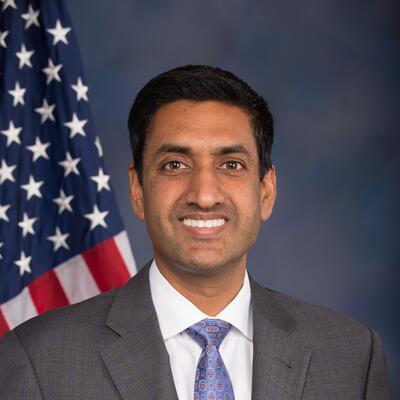
Fluid State
Guests
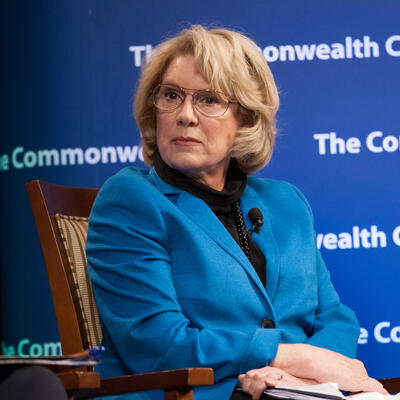
Jean Fuller
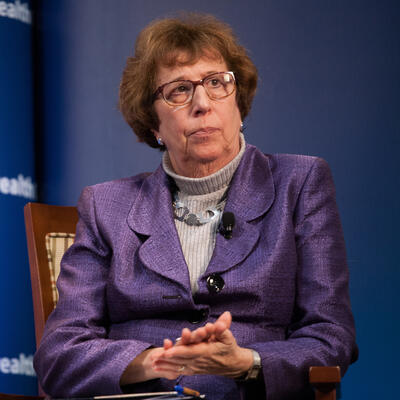
Lois Wolk

Matt Weiser
Summary
“For us, a drought means human misery, economic devastation to some natural assets and certainly an unproductive living standard for the majority of our people,” said California state senator Jean Fuller (R), who represents the Central Valley. With the state’s rainfall hitting record lows in 2013, California’s drought is a pressing issue in this election year. The shortage will be felt most by farmers in the San Joaquin Valley, and while many fields have been converted to water-conserving drip irrigation, “there’s still a large percentage of crops in California that are irrigated by flood irrigation,” according to Matt Weiser, senior writer at The Sacramento Bee. But conservation can’t be limited to agriculture – all sectors need to recognize that water is a limited resource, according to state senator Lois Wolk (D). "If you tie the amount of water to the price, you create an immediate incentive for conservation," Wolk said. Experts debate management and policy opportunities as California faces its third year of drought.
Lois Wolk, California State Senator (D-Davis)
Jean Fuller, California State Senator (R-Bakersfield)
Matt Weiser, Senior Writer, The Sacramento Bee
Full Transcript
Greg Dalton: Welcome everyone. Thanks for joining us on this sunny, dry day in San Francisco. Climate One is a conversation about energy, economy and the environment. We connect ideas and people. And hopefully you will also make some connections with people in the audience today and talk about water here in California. I'm Greg Dalton. And today at Climate One we’re talking about California’s drought and the future of freshwater in our parched state. 2013 was the driest calendar year on record. The reservoirs around the state look like puddles. As we record this program in mid January, snow levels in the Sierra Nevada are 20 percent of normal signaling water stress into 2015 even if big rains come this year. Over the next hour, we will discuss California’s water crunch, what individuals can do and how the state can balance competing needs for energy and water. We will talk about immediate measures to keep California’s people and economy hydrated and happy and long term solutions to the water impacts of an increasingly volatile climate driven by our addiction to fossil fuels. Our conversation will include questions from our live audience here at the Commonwealth Club in San Francisco.
Joining us are California State Senator, Jean Fuller, Republican from Bakersfield, California State Senator, Lois Wolk, Democrat from Davis, and Matt Weiser, senior writer who covers water for the Sacramento Bee. Please welcome them to Climate One.
[Applause]
Senator Fuller, welcome. Let's begin with you. How is the water drought affecting your constituents down there in the Central Valley?
Jean Fuller: Well, we are an example of the statewide problem that reliable water is becoming more difficult to obtain.
By reliable water I mean water that is delivered at the expected and needed amount throughout the year, not just at certain seasons. And we know that there needs to be a statewide solution to improve the delivery of reliable water. But in the last drought, we had 30 percent unemployment in most of our farm towns, especially a lot of farm workers, and we followed a lot of our crops and we were unable to deliver the groceries to the cities that we -- the products that we normally would deliver. And so for us, a drought means human misery, economic devastation to some natural assets, and certainly an unproductive living standard for the majority of our people especially those who are most closest to the edge of their ability to earn money.
Greg Dalton: Senator Wolk, how is it affecting your district, the drought in California right now?
Lois Wolk: Well, I represent four of the five delta counties in the Sacramento Region. And these counties, I'm sure you've been reading in the paper, the reservoirs, the water agencies have been reducing the amount of water that's going to be available and urging conservation of up to 20 to 30 percent. So many of the reservoirs are declining and the snow pack is at the lowest level, I believe, in quite a long time. So there's a great deal of concern about the implications of the drought for the region, for industry, for agriculture and for the urban communities.
Greg Dalton: Matt Weiser, you've been covering water for a long time. Put this in perspective, California is used to having periods that are dry and not so dry, how significant is this in the broader historic content?
Matt Weiser: Well, what I'm hearing from a lot of the water experts is that this is comparable -- the dryness is comparable to what we saw in 1976, ’77 which is the second driest period in California history. The driest stretch we had was in the 20’s but ’76,’77 was the worst drought in modern times. And they're saying right now it's comparable to that. The striking thing about that is that they're saying that in the middle of winter when water demand is at its lowest. So the concern is what happens when we get into summer? Is it going to be worse than ’77? How are we going to manage that if it's as dry as it is now with very few storms forecast as far out as they can see? Lots of people are wondering how they're going to manage. The ’77 drought was kind of like the nightmare scenario that everyone remembers in the water community, and they hope to never see another one. And now they're afraid they're going to see one that's worse than that.
Greg Dalton: Senator Wolk, what is California’s plan for dealing with this drought that could be of historic proportion?
Lois Wolk: I believe the Governor, in his State of the State, made it very clear that he's watching this very closely. He has a drought response -- he's convened a drought response group, I think. The possibility of a drought declaration which has a number of impacts is in front of us and in the budget. There are several areas that he wants to focus on. I think what a drought like this gives us the opportunity for is the opportunity to manage our existing water supplies in a better way and to institute the kinds of changes in the near term that might make it possible for us to stretch that existing supply that we have and use it in a better fashion.
So that would include the kinds of things like recycling, focusing on the condition of our groundwater, reuse and conservation, and as well as looking towards increasing, assuming it rains quickly and soon in the next several years, that we have ability to store the water that does fall and make better use of it.
Greg Dalton: Senator Fuller, what would you like to see the state and federal government do?
Jean Fuller: Well, my statewide perspective, not just my district perspective which is a little different, but today I would like them to review the regulations to respond to the emergency that's arising because of the drought, and update those regulations that are going to make us have techniques of government that respond from the past as situations are becoming more frequent, this is our second drought in the last ten years. We’re in the third of this drought. And do something that would continue to help us get through. And I think that's sort of the intent of the Governor’s taskforce. I sent a letter with several others and many other people around the state did. And he responded that he has an emergency preparedness, the food and ag, the Environmental Protection Agency and some others working together to do that. For tomorrow, I would like to have us consider that there are some ways that we can re-plumb the state. Right now our plumbing is 50 percent behind our population, in other words, when we did the plumbing for the state water system, we've grown 50 percent.
We have not used any new technology. We have not really provided any new infrastructure. And if we start right now, that's probably still 15 years away. So I would like to see us continue with the water package from 2009. And the last part of that water package was -- and the intermediate part of that is the BDCP’s comment period. I hope everyone engages in that.
Greg Dalton: That's the Bay Delta Conservation Plan, a plan for restoring the Delta and the Bay.
Jean Fuller: Yes. And the last piece is the bond that’s slated to come up in November. And that would provide money for habitat restoration in the Delta and reliable water storage.
Greg Dalton: Let's talk about that because there are some talk about whether the bonds has been on the ballot, they're being kicked down the can down the road several times for fear that the voters might not approve $11 billion. Now they've been paired down to $6 billion. Has the prospect for those bonds improved if there's a drought because voters will throw money at the problem or there are some concern that the Governor may not support it? Senator Fuller.
Jean Fuller: Well, I'm smiling very largely because I was one of the people, as was Lois, that worked very hard, we spent many, many nights working on what our water package should look like. The first part of the water package BDCP passed and went through the other part didn’t have enough financial backing to survive on the bond so we all agreed to put it over. But now with Sacramento being what we are, we’re thinking about how could we change that bond. And so that's what's sort of being kicked around; either the bond stays at the same amount it is now in November or we do some new legislation that changes the bond for a number of reasons. So that's more of the discussion about the future building our water future is how do we work with that bond and the funding.
Greg Dalton: Senator Wolk, $11 billion bond in 2014 or more like $6 billion?
Lois Wolk: At least more like $6 billion, and that's probably high.
$11 billion is out of the question. I think the people of the State of California and all of the polling has shown that people of the State of California are very, very leery of bonds. And whether or not the Governor will be willing to put anything on the ballot in November is really up to him and the legislature to decide. And we don’t have a decision yet. I believe that we do need a water bond. We need it for the near term kinds of actions that water districts are looking for throughout the state to diversify and strengthen their regional portfolio with respect to water. I think that a bond can have nothing to do with the tunnels and the BDCP and the grandiose plans that will never come about in the next 10 to 15 years. I think we need to focus very clearly on the kinds of things that water agencies are looking for and that people will support, and that has to do with recycling, cleaning up ground water, and that will make a difference in terms of drought and will make a difference in terms of water management. Those are the kinds of things that have a chance of getting voter support. Consensus-based, nothing to do with tunnels and the BDCP and things that are practical, workable, affordable and that frankly, we need at the local level regionally throughout the state to manage our water supply in a better way.
Greg Dalton: Senator Fuller, let's get you on that, the tunnels, grandiose plans?
Jean Fuller: The way I like to look at this is in 2009 all the legislature who worked very, very hard together, all the regions of the state and basically the deal that we came up with which none of us liked because it was a huge compromise which is what's good for California in the end, came up with coequal goals.
Those coequal goals were that we all agree that we need reliable water for Californians, but the thing that made the deal was that it's both supported native habitat and a healthy economy. And we agreed that there would be public moneys, and that's the bond, to pay for public improvements, and then there would be rate payer moneys to pay for, for example, the tunnel, most of the delivery system, quite a bit of the mitigation. And so from my perspective, in a climate change environment where we know that we have more threats from fire drought and saltwater intrusion than we've even had, we need to use some science to have some very good planning about what those public benefits are because the public has to be willing to pay for it, and understand what those are and agree, I agree with that part. And we need to be very clear that the rate payers must be charged as beneficiaries.
Greg Dalton: Okay. Matt Weiser, let's get you on this in terms of there are some different approaches to the bonds, some are more Delta-centric, some favour other parts of the state. How do you see the politics of that playing out in this election year with a governor who is eyeing re-election?
Matt Weiser: Well, the original bond was sort of like a pork barrel for everybody. It got on the ballot in the first place because it included a little bit of something for every part of the state. It was mainly a water bond but it included a lot of other things, habitat related, parks projects even that's why it was so big. If it ends up being smaller -- a lot is going to depend on what's in it. As Lois mentioned, there's controversy about whether it ought to include money for the Delta tunnels.
There's also never ending controversy about new dams. There was money in the original bond to pay for dams but only if local governments, local water agencies put up money first for a local dam project. So whether a bond will have success this election year, it depends on what's in it. I do think it may have better chances in the drought year because people will be thinking about water. They might be less likely to even pay attention to what's in the bond when they vote on it. But with a bond that size and as much debt as the state has already, it's going to be important to pay attention to what's in there.
Greg Dalton: Let's talk about agriculture. Senator Fuller, about 60 to 80 percent of the water used in the state is for agriculture. A lot of gains have been made there yet there’s still flood irrigation that happens in the Central Valley. Is ag doing enough to use water wisely?
Jean Fuller: Well, what I would like to say about that is, first of all, that the San Joaquin Valley doesn’t use all the water. In fact, the communities around the Bay Area, Alameda County, Santa Cruz County and several others, rely on about 50 percent of their water supply from the Central Valley and the state water project. So there is farming in those areas and they rely on it as well. So I will only speak to my half because rice and some of those crops, there’s not a lot of drip irrigation that you can do. But in my area, I have seen the crops completely changed from potatoes and cotton which are real crops, to trees and nuts. As you drive down the Valley, I think you're all seeing more of the drip irrigation vines, grapevines conversion.
Now, is that enough? No. Technology is always going to have to continue to improve and continue to find ways to use more recycled water. But recycled water conservation are really good for farmers and they work very hard to get those kinds of things because it's an economic value to them. It makes it cheaper for them to raise their crops. Unfortunately, it is not new water. And as you recycle, you lose water, you lose some portion of the water. So for us, agriculture has actually like doubled sort of their efficiency in my area because they've been able to change the kind of crops that they grow. But across California, we are not the whole picture. And across California, I'm not sure if that's the same. And can they do more? Always. As long as we support research in science, they will take that research in science because it makes it more economically feasible for them to raise their crops.
Greg Dalton: The value of California agriculture has gone up with water use about the same in part because there are more pistachios, higher value nuts and higher margin products. Senator Wolk, is ag doing enough?
Lois Wolk: To think about California water and managing our water wisely is that every sector has to be using every drop recognizing that it is a limited resource. Of course it's important for ag and for that multibillion dollar industry that feeds us and that feeds the rest of the country and the world to have water that's available and at a reasonable price. That means they, as well as the urban areas, as well industry, as well as the fish, when you're in this kind of situation with a drought, you need to take very good care of each drop.
So it's really important to conserve no matter where you are, no matter which sector of the economy. This is for all of us, it's not just one area.
Greg Dalton: Matt Weiser, let's get on that and then we’ll talk about Southern California which is in LA but first on agriculture and water in terms of low-hanging fruit, pardon the pun, to be better with water.
Matt Weiser: Well, I agree with the others that ag has gotten a lot more efficient. However, there are still a large percentage of crops in California that are irrigated by flood irrigation. Some of those crops require it like rice, but there are others that could still be switched over to drip irrigation or sprinklers even but there's still a high percentage that's flood irrigated.
Greg Dalton: And what's stopping those farmers from moving where they could from flood to drip? Is it the cost? Is it just culture?
Matt Weiser: I've been told one of the big ones is cost. It's costly to change a field over to drip irrigation. And I've been told that one of the things that would help is some kind of grants or low interest loans to help farmers do that. So that's a bit of low-hanging fruit, I think.
Jean Fuller: And if I can just mention real quick, because there was a 5 percent allocation for the state water contractors this year which means they would get 5 percent of the 100 percent of water that they've already paid for, and they only even get 5 percent, farmers in my area will not be able to get loans from the bank at this time so this will be not a conversion year unless we do something else because they're not even able to get loans proceed on a 5 percent water allocation. You can see why a bank would be hesitant if they weren’t going to get water. And even for permanent crops that use less water, the future is a little murky because they’re not very interested in trying to give any kind of loans to agriculture at this time.
Greg Dalton: Senator Wolk.
Lois Wolk: I was going to say that with respect to agriculture conservation, one of the areas that the bond could certainly help with would be these kinds of financial incentives for ag conservation. They've existed before and I think it's important to try and replenish some of those funds because that efficiency is important.
Greg Dalton: If you're just joining us, we’re talking about California’s drought at Climate One. Our guests are California State Senator, Lois Wolk, California State Senator, Jean Fuller, and Matt Weiser, reporter from the Sacramento Bee. I'm Greg Dalton.
Let's talk about the fish versus food tension and how the water crisis this year in California is going to play out and that struggle, Senator Fuller, between the Delta and the farm areas and the fish and food.
Jean Fuller: Remembering that I come from the Central Valley and that perspective has a little different perspective which is they want to maintain the same contract that we’ve had for water over the last four years I’m going to move to the next point. As a member of the legislature and as a person with a Ph.D., I eventually realized that we were going to have to have co-equal goals and those co-equal goals are both habitat restoration and a healthy economy and water for people. So that to me was the strength of the 2009 water package, was that if those two goals fell apart then there would be no package. But if those two goals stay together what it meant was that there was $3 billion for habitat restoration and nothing for tunnels but to make the flows more like they were so that the native ecosystem would be maintained, and that there would be 3 billion for storage and that storage would then give reliable water because when you store water, just like your bank account, then you can let it out a little bit all year long.
But then as Matt said, the legislature being the legislature, there were then other needs and then there were other concerns. And other needs were things such as disadvantaged communities that weren’t maybe close to the pipe that have water recycling issues that they needed to attack and so then there is money in there for that. And then there were concerns which were more secondary such as educating people about conserving water or the financial impact of putting water options and tools such as dams or no dams or taking them out and that became and called the port. And it’s a little hard for all of us to identify ports since if it’s ours we don’t think it is.
[Laughter]
So we could get to six if we didn’t have other needs and other concerns.
Greg Dalton: So everybody wants to have what they have had than used to having in recent years, cities, farmers, et cetera, but climate science would say, “We’re all going to have to get by with less and we’re going to give something up. We can’t have what we’ve had the last few years.” And that’s not really sinking in.
Jean Fuller: Well, I think it’s sinking in. I think the legislature finally in 2009 recognized that drought really pushes over plus the levy collapse in New Orleans they’re based on the TV, all levies need help, that there can be those kinds of risks and some of the stressors like we’ve cleaned up the water in the American River with the sewer plants a lot better and we’ve done a lot of governance work around the edges. But what we still have to face is the hardest questions: funding and jurisdiction. And those are written out once but it’s been a couple of years now and so people will look at them again in terms of with today’s circumstances
Greg Dalton: Senator Wolk, I want to get you on that point in terms of we’re not quite capturing the reality that we’re going to deal with less water in California and there’s a lot more water on paper than there is in reality.
Lois Wolk: That's absolutely true. And I think one of the more useless kinds of debates is fish versus farm, fish versus food. That doesn’t advance the conversation. That, in fact, stops the conversation. Everybody goes to their corner and continues the fight that is going on in California water forever and will continue which is why I said at the beginning, the drought gives us an opportunity, I think, to focus on how we manage our current supply and how to devise for the next two to five years, near-term, the kinds of things that will improve our management of the water supply, perhaps even increase the reliability of the existing water supply as well, and move this debate forward and fund those things without the kinds of debates that are fish versus food. It doesn’t help us. And I think the same thing is true with the tunnels and the BDCP.
The problem with the tunnels is they have taken -- it's like walking into a room and there’s this giant elephant in the room. Instead of talking about the kinds of things that are being done at the local level that are really effective, including storage, underground and above ground, recycling, desalination, the kinds of things that water districts throughout the state want state assistance for, we go into these rooms where all we’re talking about is fighting about these two giant tunnels that will never be affordable. The price is now $54 billion. Really, let's get real. Let's do something that we can all agree on that we need which is to fund those kinds of important management tools that we know can be used at the local level and that make a difference in every region of the state.
[Applause]
Greg Dalton: Senator, that's a Delta perspective. Let's have a...
Lois Wolk: It's not just a Delta perspective. I object to that.
Greg Dalton: Senator Fuller.
Jean Fuller: I agree with most of what my colleague has said. She is a respected water expert and actually precedes me, and I have a great deal of respect for her opinion. But my perspective that comes from my advocacy for my constituents is that climate change or something is making us have droughts more regularly than we've had in the past. And we all need to get real, all of us, not just the legislature but all of us, about how do we plan for the water in the future. And the tunnels are not being paid for with the bond, and they are rate payer money because it's beneficiaries. So it comes down to this, that all the people who want to increase the water over the current level, if there can be new water available, which means new storage, then those people have to pay. And what will pay for that is whether the economics pencil out or not. And frankly, my area farmers are very worried and they're not 100 percent behind some of the 2009 water package than they have to because they are the most worried that it won't pencil out for them. Frankly, Los Angeles who only requires 30 percent of this water supply as compared to 50 percent in the Bay Area and 80 percent for the Livermore area, they have other alternatives to mix cheaper water with it, and they have a huge rate payer’s base to spread the fees over.
And so even though it is a huge amount, it is possible for them to do that because it is less expensive than, for example, desalination which is another way to get new water.
Greg Dalton: Senator Wolk, should Los Angeles do more? We haven’t talked yet about the Southland, big water user. What's your view on that?
Lois Wolk: I have found that many of the Southern California retail agencies, the actual agencies that deliver the water to people, have been instituting conservation in a pretty dramatic way because the cost of their water is far higher than ours. And I would like to be able to talk about pricing in a separate issue because I think it's really important about water. But I think San Diego water authority, these places that import so much of their water, recognize that they really do have to be very careful about using each drop of water carefully. Does that mean they shouldn't or can't be doing more? Of course they can and they must. And it is in fact what they're going to need to do no matter what happens with tunnels. My feeling is that the regional efforts that they can continue to make in conserving water and reusing water and desal and lots of other ways in reducing their reliance on the Delta, money is better put into those areas for them than it is in this Tunnel Boondoggle. Yes, they're going to have to pay but, my goodness, why would their raise their rates 30 percent for some tunnel that isn't going to yield them as much water as they have now?
Greg Dalton: In fact, Los Angeles has about a million more people than it did 20 years ago. They use the same amount of water that's actually -- as someone who grew up in Northern California, loving Southern California for their profligate water ways have been corrected and learned that it's different now. Matt Weiser, let's get you in on this in terms of the Southland and their role in the water politics of California.
Matt Weiser: Well, as it happens, I spoke yesterday with Jeffrey Kightlinger who’s the general manager for The Metropolitan Water District of Southern California. And the numbers are actually bigger than what you just described. Since the ’92, drought, they've reduced their water demand across the whole LA, San Diego metro area by something like 30 percent at the same time as they've added something like 5 million people. And they've done that because they've spent $3 billion on all kinds of storage projects. They built the largest reservoir in California in close to 50 years. They built a giant tunnel to move water into that reservoir faster when the water is available from the Delta among other places. And they built a whole bunch of groundwater storage projects where they can park water until they need it, then they move it into reservoirs.
And they pay a lot more for water in Southern California partly because they have to spend a lot of money to move it there but it's also because they've made these large investments. And we haven’t done quite the same thing in Northern California because we’re accustomed to having more water readily available in our rivers. And we’re finding out now that that's not going to be the case all the time. We can't say that this drought is related to climate change but I think it's indicative of what we might see in the years ahead because of climate change. And so we need to keep that mind as we deal with this drought year and plan for the next ones.
Greg Dalton: Matt Weiser is a writer with the Sacramento Bee. Our other guests here at Climate One today are Jean Fuller, California State Senator from Bakersfield, Republican, and Lois Wolk, California State Senator from Davis, a Democrat. I'm Greg Dalton.
Let's pick up on pricing. Senator Wolk, in electricity there's a move toward pricing based on time of day, based on demand. Dynamic pricing, we all pay that now for parking spots and tickets at the ballpark. Will we see dynamic pricing where the price will go up and down in California based on supply and marketing conditions.
Lois Wolk: I think we need to move in that direction. The connection between what one pays for water and what it cost to get it to you is really broken. We don’t have that connection. And I'm a firm believer in the ability of the market to moderate some of these, to reflect the value of a commodity. That being said, there are some things that we can learn from the electricity pricing arena. Tiers -- you use a whole lot of water. You pay more for it. And there should be a lifeline below which -- there's a certain unit or amount of water that is given just across the board and then beyond that, there are different tiers whether it's industry or agriculture.
I think we need to learn from that because one of the things -- if you tie the amount of water to the price, you create an immediate incentive for conservation just as you do with energy. I mean, we all talk about how to conserve energy, how to make our houses more energy efficient. I'm not sure we've had the same kind of focus and thrust with respect to water. Do we really, when we put in our landscaping, many of us do but do we really, all the time, when it's raining, do we really think about the best kind of energy are water efficient landscaping?
I suspect that when the drought goes away, we just kind of revert to the kind of plans that we've always loved. But we’re going to have to change -- the Governor said it wisely, “Conservation has to become a way of life”, and price and the pricing element is part of that. Very controversial.
Greg Dalton: Senator Fuller, dynamic pricing for water, how would the farmers in your district or county…
Jean Fuller: Well, actually most of Southern California really, including my farmers, have worked very, very hard on that, and pricing, in some way, does affect them. But here's an important thing to think about; with electricity, we can make it. It's more expensive but we can make it. So we can have a steady reliable flow because we can make it. It my cost more, we might those by cost. Water, if you have not -- new water, new freshwater, if you have not, capture snowmelt and then hold it somewhere, you don’t have it to sell, you just don’t have it. And that's what we’re facing now in this drought which is the symptom of the bigger problem for planning for planning.
And so, for example, from like mid valley down south, because it's a drier climate, we have already had to develop expensive water tools and water options and invest in those such as water banks and the pipe storage and alternate means and so on and so forth, and drip irrigation and recycling in a very big way. But the north has been more lucky. And so many communities in the north have direct stream supply. So now there's no snowball. I think Calistoga had 18 percent in their reservoir, I think San Louis had, you will have to help me, but I believe it was like close to 29 percent in their reservoir.
I believe that Folsom Lake had, I don’t know, 20 percent. Okay.
Greg Dalton: It's towards 17 now.
Jean Fuller: It's 17 now. Okay. Obviously, 100 percent is with the reserve. And when you get down below 50 percent, you are way beyond being able to help yourself by recycling and rationing. But they have no choice. Where are they going to get that water? Nobody can make that water. So Calistoga is already into, as I understand it but mandatory water rationing to try to save what they have. And the communities in the Napa Valley and below are already being hit because they don’t have reservoirs and there's no onsite storage up in the Sierras not enough to provide for them.
So pricing, it's happening by itself. The prices are going up astronomically all over but the residential area in Southern California doesn’t feel it as much because maybe at the end they'll have a $70 bigger bill. So that's why our farmers are not sure if they even let this bond because they don’t know if they can even afford to buy in any way to put infrastructure, and much less, if they were pricy. And why I think and why I'm here today because it's kind of scary to come up here, is to let Northern California know that Northern California is in trouble if climate change changes our needs for water creation and because there's only one way to create water, get rain water, snow water.
Greg Dalton: Well, thank you for being a Republican from the Central Valley, coming into south San Francisco you're in trouble because many Republicans won't even say that word. Matt Weiser, let's talk about the water restrictions that are going on already, the construction industry, hook ups, et cetera. Tell us about some of the things in place already.
Matt Weiser: Well, something I forgot to mention earlier about Southern California, amazingly, they are not anticipating any water rationing this year, no water conservation measures related to drought, that's because of the water they have in storage already which they've managed to put in storage with that large investment I mentioned. In the Sacramento area, it's a much different picture. We already have most of the municipal water agencies in the area have adapted, at least 20 percent request for conservation. And they've made it a request because, well, for a variety of reasons. One is that they don’t already have tiered water rates as a routine part of their customer pricing system. So in order to create pricing incentives to conserve, they have to -- they're bound by proposition 218 which means they have to actually go through an election process to change the rates. That takes time so they made it a request initially.
Another reason is that while San Juan Water District which covers a huge area of the Sacramento suburbs, on Wednesday they requested that all their customers completely stop all their outdoor watering. This district is largely dependent on Folsom Lake and as we said, it's at around 17 percent of capacity. They've cut water releases into the American River to try to hold the reservoir stable but that's going to kill salmon in the river. We mentioned food versus fish. Well, it's important to remember that fish are food. This is part of the salmon run that supports the commercial salmon fishing industry statewide. If you buy wild caught salmon in California, you're buying this fish. And their eggs are dying in the American River because we’re saving water behind Folsom Dam for those suburban communities.
If the drought continues, San Juan is going to adapt a stage 5 drought plan which is the most severe category they have, that will happen in February if it stays dry. And that will mean mandatory no outdoor watering, 50 percent conservation in all your water use, no new hook ups to the water system. So if you're building a house or a new business, you'll have to wait. You won't be able to build it or connect water to it. Other communities in the area are at 20 percent. The City of Sacramento which is the biggest water user in the area, is expected to go to 20 percent -- 20 to 30 percent conservation order next week. So that's just the Sacramento area. Other places -- Mendocino County, is in similar situation.
Greg Dalton: Should the California -- should the environment -- the Endangered Species Act be relaxed? Would that help in this situation? Matt Weiser then we’ll get Senator Wolk.
Matt Weiser: Well, that's one of the things that has come up and comes up any time we have a drought. If it could be suspended, it would, theoretically, allow more water to be diverted from the Delta. That would take federal action. At the moment, the feds are not onboard with any of our drought issues. If the Governor declares a drought which is looking like he's, at least, thinking about it, one of the things that would do is it would allow him to modify or suspend water quality rules in the Delta which would also allow more water to be diverted from the Delta. And that would have impacts on fish and habitat in the Delta.
Those Delta fish species, as we recently learned from the latest survey of their populations, they're all at historically low levels this year as they have been in recent years. And we already know that they do poorly in drought years. So you kind of have two strikes against them already. And if you lose in those water quality rules and take more water from the Delta in a drought year, that could be a third strike.
Greg Dalton: It sounds like that's an unlikely option. Briefly, I want to get that from Senator Wolk and Senator Fuller then we’re going to go to audience questions. Should the Endangered Species Act be relaxed?
Lois Wolk: Well, I don’t believe so but, as I said earlier, in a serious drought -- well, I come from Northern California, there are a number of things that have to be done before we resort to throwing out what I think has been a great law. For example, we all need to meter. We don’t in Northern California. We don’t in Sacramento. We need to do that. With respect to groundwater throughout the state, value as well, we don’t meter it. We use 30 percent -- 30 percent of our water use in California is groundwater. When we go into a drought situation, it goes higher, it goes close to 40, and yet we know very little about what goes on in our groundwater because we don’t measure it. Well, how serious can we possibly be about water use in the State of California if 30 to 40 percent of water is not metered? We don’t know what the condition is of it. We simply don’t know that. There's a lot that we have to do before we start suspending our laws. And frankly, I don’t want to see three strikes happen to the Delta, and I don’t think the State of California wants that to happen either, and I certainly don’t believe that voters would support that.
Greg Dalton: Senator Fuller, should groundwater extraction be metered?
Jean Fuller: The way it's metered now is how much you put in because groundwater is just like an empty teakettle, you put water in, and once you pump it out, it's gone, you got to keep putting it in. So one of the tools that we have that's really going to help us a lot to this third year of drought is that we put in a water bank, and in past years we put a large percentage of our water that came to us in that groundwater bank. And we have our own river, we have our own dam. It's not enough for the whole area but it's very good, it's very well. And we measure and meter all that that goes in. So the bottom line is we can measure all the contents of this empty teapot or this half full teapot but at the end of the day if you don’t put some more water in there, it doesn’t matter. And so for us, we are going to be doing conservation measures. We've been doing them all along but we know that if after we've done every single conservation measure, if we get down to where Folsom is, we will still have drinking water for families, probably, out of that water bank.
So back to should we do something about the Environmental Species Act, the legislature had that same hard problem in 2009. And so in 2009 what we decided was we were going to make like a state-wide EIR for the whole area and we’re going to put people who were experts in science to study how you would do it and support the coequal goals. Remember those restoration of habitat and reliable water instead of politics because as you know politics. So that's what the BDC was supposed to do, that's what the science was supposed to do, and we were doing that but they didn’t imagine another drought of this type hitting us so soon.
So what I say is, is the government’s job is to respond to crises as they present themselves. We are having a crisis that's presenting themselves that's beginning a pattern, and that pattern is affecting our water supply. And unless we can get people to quit drinking water in August, which I don’t think is going to happen, then we need to do something that changes so that we are looking at both of those goals. And just real quick, I'm not going to talk about the towns I want to talk about alternate conveyance because that was the 2009 agreement, is that alternate conveyance would be paid for by the beneficiaries, and that then became the tunnels. But that was put in specifically because it would change the flows back to the old flows in the Delta. So a huge expense that a lot of my farmer guys don’t want to pay for it because they're happy with the way it's flowing over to the pumps right now. But in order to not affect the fish and the habitat as much, we’ll have to have flows that do not go the wrong direction.
So the whole tunnels issue, if it goes away, in one way, yes, then we don’t have to worry about how we’re going to pay for it, there's still ways to get water down the aqueducts. But you know what? It doesn’t help the Delta. It doesn’t fix the flow pattern. So we’re not using every tool we can to deal with stressors and threats to the ecosystem. And that's not the only thing that saved it.
Greg Dalton: So I think that was no on metering and a yes on…
Jean Fuller: I would say yes on metering in terms of we meter everything and we charge everybody for everything but not new metering just on new water that you put in the groundwater because, to me, it doesn’t solve our problem.
Greg Dalton: We’re talking about water at Climate One with State Senator Jean Fuller, State Senator Lois Wolk and reporter Matt Weiser. I'm Greg Dalton. We’re going to invite your participation up here for one brief comment, question here on water for our speakers. The line forms over there with our producer, Jane Ann and Dee. And if you're over here, please go out those doors and the line forms right over there. We’ll get as many as we can with quick questions and quick answers and 16 minutes left. Let's go to audience questions. Welcome to Climate One.
Male Participant 1: Good morning. Thank you for being here and for your discussion. I'm of the opinion that there's adequate water in the State of California. And the biggest problem the state has had for the last 60 years is old water laws and gross mismanagement of water. And until the legislature and the Governor gets serious about it, you're going to keep having these 20 cent conversations instead of doing something about it. I would like to ask the two senators what do they think they can do legislatively? I mean, they grow algae in the gutters in Fresno and in Corona Del Mar California. Why isn't somebody doing something about that? And how about the evaporation from the swimming pools and all that other funny stuff that we tolerate in times -- when you're thinking about we may not have enough water to drink? What is the legislature going to do about it?
Greg Dalton: Quickly, Senator Fuller then Senator Wolk.
Jean Fuller: I think one of the things that the legislature did that I -- I can't say that I agree with it at the time but I have to say that in the drought it makes some sense. They said that no new subdivisions could be built without approving a 20-year water supply. Boom. World changed. World changed because, guess what, no new water, 5 percent allocation. Okay. So then if there's no new subdivisions then if people want that, then they will try to buy the excess from somebody else, so then you begin not having lawns, not having swimming pools and so on and so forth for your area. So while it's in its early stages, that will have some effect that's in a short time, if you want to talk later, I'd be happy to, but in a short time, that, to me, was the biggest global effect that we probably need to look at again.
Greg Dalton: So water reality development. Okay. Senator Wolk.
Lois Wolk: I'd like to compliment Jean, actually. What she just said is probably -- you better be careful when you go back to Bakersfield.
[Laughter]
Jean has been an excellent voice for reason in the water debates even though we do not agree about the conventional results. But in any case -- remind me again.
[Laughter]
Greg Dalton: The legislature, what would you…
Lois Wolk: Oh, the legislature. Yes. Listen, some of the worst -- changing water law, legislature doesn’t do that really well, in fact it doesn’t do it at all. Water debates are very unsatisfactory. It's going to be very difficult to do that. Frankly, most of the advances that come about in the water area come about because of laws. There are litigations, there are lawsuits, and then a judge moves the endangered species law or something moves forward or is upheld, and then we react. I don’t hold a tremendous amount of hope for the legislature waiting in and changing water law. We tried to do that in 2009 and came up with these dual goals. It's wonderful in theory but the fact is the folks that have the water supply have more power than the ecosystem folks do. And it's all going to have to be worked out in court ultimately.
Greg Dalton: And water supply is regulated, it's very fragmented, there are hundreds of water agencies, it's a very local issue. Let's go to our next audience question.
Ed Church: Hi. I'm Ed Church with the Institute for Environmental Entrepreneurship. I'd like the panel to comment on the water related issues of fracking which uses vast amounts of freshwater and then threatens to pollute the groundwater
Greg Dalton: Senator Fuller, fracking happens in Kern County.
Jean Fuller: First of all, I'd like to say that, again, if you look at the bigger picture -- so right now, like it or not, fossil fuel is the largest part of our portfolio for energy. And if we stop it tomorrow, we couldn't provide. And fracking is, in California, different than in other areas. It uses less water. In fact, they have estimated that it really, in most cases, it's only about a golf course or what a golf course uses in a day. But having said that, it's more about so what is the price of energy and where do we get our energy and how much water do we have and how do we keep a balance. In my area 80 percent of the fracking is not over water table, and the water is used very, very sparingly, and it's not like the northern coast.
I think it's good for the public to become educated about it and to learn about it but I think a moratorium would only make the water crisis worse because energy prices would go completely up and we probably wouldn't be able to get enough energy especially if we did on short term. It would have to be imported energy which we know when you import energy, it costs money, it brings more greenhouse gases, big disaster, not really a good solution. And ultimately that we can use technology to make all these processes safer or we can make our generation for energy safer or larger or more productive. So to me, it's really a question and certainly a moratorium is not the answer but of using reason, science and technology, to move us along to better practices so that we have a balance.
Greg Dalton: Next question. Welcome to Climate One.
Male Participant 2: Thank you all for being here to talk about such an important issue.
A few years ago, I changed my attitude from being somewhat careful about my use of water to being very careful about my use of water. Water bill shows average gallons per day consumed, I went from 100-something to 11 gallon today. My use for…
Greg Dalton: That's low.
[Applause]
Male Participant 2: I live alone in my house.
Greg Dalton: And your question is.
Male Participant 2: My question is -- well, that says to me there's huge potential. All I had to buy was a couple of five-gallon buckets. There's huge potential for a combination of education and maybe regulation to make a big change without a lot of technology, without a lot of infrastructure improvement.
Greg Dalton: Thank you. Thank you.
Male Participant 2: Quickly. What's your impression?
Greg Dalton: Let me interpret that, your response to that but also ask you what you personally do to manage your own water impact.
[Laughter]
Senator Fuller, how big is your lawn?
Jean Fuller: I personally spend eight and a half months in Sacramento every year. My water bill is almost nothing. And my…
Greg Dalton: But it's not measured or metered, right?
Jean Fuller: No. It's metered. Every bit of Bakersfield is metered.
Greg Dalton: No. Sacramento is not metered.
Jean Fuller: Oh. Well, since I live in an apartment, I guess I don’t really know much about that. I just pay the landlord. He's probably making money off of me because I'm from southern area, Central California. I don’t know that water is cheaper up here. Sorry. That's the truth.
Greg Dalton: Senator Wolk.
Lois Wolk: When we -- I was on the Davis City Council in the 90’s, and I was very much interested in water at that time. And we retrofitted water meters, nearly was recalled, but we did it. And what happens is -- where's the gentleman?
Reduced rate of water, immediately, there's a decline in the amount of water that people use just because they're paying attention. And more important, you find out where the leaks are. So if you get a water bill of $900 a month, bingo, there's no reason in the world that that would happen. And that’s what happens. It's an educational function. So you want to know what I do. I mean, I just redid all my landscaping. And I love my landscaping. It's all water efficient. I do all the water -- everything that we’re supposed to do, toilets and everything, many of which are mandated now. A very important thing to do.
Greg Dalton: Matt Weiser.
Matt Weiser: Well, just to correct what you said earlier, Sacramento is about half metered. There's another half still to go and they are working -- they've accelerated putting in meters. There's a 2025 state law deadline that requires the city to be fully metered. However, I live in a city in Sacramento, a neighborhood in Sacramento that is not metered. I don’t have a water meter at my house. I have no idea how much I use on a daily basis, and I think that's horrible. However, personally I took out my own lawn about eight years ago. I don’t have a lawn. I have native plants. Everything that needs water is drip irrigated. I redid my bathroom a few years ago and put in a low flow toilet with two different buttons depending on what you're using it for. I wash full loads of dishes, full loads of laundry. I do everything possible to save water. However, I'm embarrassed to say that the gutters in my neighborhood are running full of water virtually every day because my neighbors don’t have meters, they have lawns, and they don’t pay attention.
Greg Dalton: I'll just add, chime in on this, yesterday -- people who live in San Francisco can call the PUC. They will come and they will -- they're going to come to my house in a couple of weeks and do a water evaluation.
We recently installed a re-circ pump on the hot water heater so it circulates hot water when the kids are taking showers. So hot water comes quickly. It uses a little bit of power, it saves water. Senator Wolk, you wanted to add something. And we’re going to get to the next question.
Lois Wolk: I think it's really important to be careful about this because then we go into each house and we start to determining family size and how much water use. I think that's where the pricing mechanism comes in. People ought to be able to have part of their landscaping be lawn if they want, but it's seems to me that you should be willing to pay for the total amount of water that you take. And if I want to take a ten-minute shower and you don’t, fine. What are we going to have? Water police? No. It seems to me that that's where the pricing mechanism comes in. You expect to pay -- use the amount of water you want and then the price should be reflective of that.
Greg Dalton: Let's go to the next audience question. Welcome to Climate One.
Male Participant 3: Thank you. I realize that there are many water agencies and they are the ones that institute request and mandatory water rationing. But given that last year was a dry year and it typically starts raining in October and we’re almost halfway into January right now, and I was shocked to learn some reservoirs have less than 20 percent, I'm just amazed and wonder why nothing has been done sooner than now.
Greg Dalton: What’s taking it so long? Who would like to tackle that one? Senator Fuller.
Jean Fuller: Well, I don’t know if I could say what's taking it so long except that since I've been in the legislature -- remember, I was a school superintendent before I came so I actually had to get these kids to school every day on my buses. I couldn't wait eight months for that to happen. But when I got in the legislature I found that our state is so big and so diverse that it takes so much time to process things and so people -- the crisis of the moment gets the attention.
And it's not good planning, it's not good anything, and I should -- I'm not making apology but that's like one issue. So I don’t blame one party or the other. I'm a Republican right now, I could be sitting going “Oh, that's a great answer.” I'll just blame those guys. They're in control, right? But it's not really like that. It's more like -- and we had a drought and we were working on it, we got We got the 2009 package almost out and then the drought got better which is good but then people’s interest fell off. So that's number one.
Number two was I'm one of first persons and I went and talked to Congressman Valadao and we put out a letter that said the farmers find out first because they find they're only going to get 5 percent allocation so they know -- they know they're in a world of hurt. They know that everybody’s livelihood right now, because they're not going to be able to buy seed and plant, is hurt for June and July. And so it kind of doesn’t matter for them -- I mean, it matters but it's like it's hitting them right now. So we wrote the letters, we got everything going on, we started shaking and saying, “Somebody needs to watch it.” And I have to say, our governor stepped up and said he's going to do a taskforce. And I also sent a letter to President Obama and he hasn’t answered me yet but I guess he has reasons. And I think that all of us as we become informed, and that's why I'm here today even though, as I said, it's scary, we get the word out to everybody. And I think it's particularly important that people understand that the water dynamics are different now because this is a third year drought. So the water supplies are gone for people and it's going to hit later. So pretty soon like August and July, people will be really waken up if we don’t get rain in the next six or eight weeks, like huge rain or, actually, a huge snow pack we need. That's all I can -- I don’t know. She probably has the better answer, she’s in the government longer.
Greg Dalton: Jean Fuller is a California State Senator, Republican, from Bakersfield. Let's have our next audience question.
Cynthia Coller: Thank you so much. I'm Cynthia Coller with Water Now.
And as all you probably know, household water use is more than 50 percent of that in California on average, of course, is for outdoor landscaping. And the legislature, thank you very much, all of you, I'm sure you supported it, passed a terrific gray water statute about three years ago. However, there's been virtually no funding and very little bit of an uptake. And I'm wondering in the year ahead, do you see an opportunity for the legislature to build on that success from 2011 and provide some funding so that water districts, which I think has been acknowledged here which are very dispersed, very decentralized, can really move forward and make gray water more of a solution for California homes and businesses?
Greg Dalton: So let's end on -- more on gray water, catching water as our grandparents did. Senator Wolk.
Lois Wolk: Absolutely. And when -- we’ll go back to how we started. It seems to me that the drought gives us an opportunity to go back to these areas and replenish the state funding that used to be available in greater amounts for precisely these kinds of regional projects that increase the water supply, increase the reliability of the water supply. We need to do that. And there's consensus on that. So we need to build on that, and that's what a bond is for.
Greg Dalton: Matt Weiser, thoughts on gray water.
Matt Weiser: Well, I think gray water is one of the other low hanging fruits. There's a lot more we could do with gray water. I think many homes could be retrofitted with some kind of a gray water system to use for landscaping. It ought to be easier to do that. There ought to be incentives for homeowners to do that from their water agency. Another one is catching rainwater. I was talking about Southern California earlier. There are rebates that water customers down there can get to purchase rain barrels. I think we ought to have rain barrels and rainwater catchment wherever we can.
Greg Dalton: Senator Fuller, last word.
Jean Fuller: Well, I think we’re going to have to explore all of those but we need to have a big plan to review all of our technology and all of our regulations because sometimes regulations block progress like this, and sometimes we need incentives. Now, I'm from the minority party so unless I jointly partner with my friend here, Lois, I probably won't be doing any of those bills even though I think that that's an area that we need to work on. And I'm glad it was suggested today.
Greg Dalton: And as we end here at Climate One, I'd like to thank Senator Fuller again for being a rare Republican willing to come talk about these issues which are so difficult in this time. Our guests today at Climate One have been Lois Wolk, California State Senator, Democrat, from Davis, Jean Fuller, California State Senator, Republican, from Bakersfield, and Matt Weiser, senior writer from the Sacramento Bee. I'm Greg Dalton. You can listen to this and other Climate One programs in iTunes including a program called a Mountain Meltdown with ski executives talking about the ski industry being impacted by some of the things we've been talking about today. Thank you all for coming to Climate One.
[Applause]
[END]
